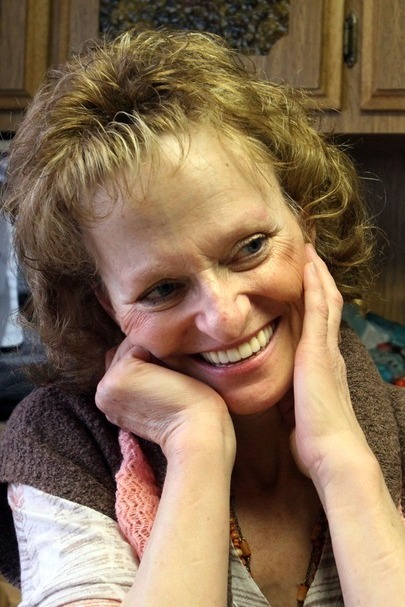 Photo courtesy of the Salt Lake Tribune On November 7, 1993, 35-year-old Debra Brown went to the Logan, Utah home of her employer, 75-year-old Lael Brown, to check on him because he had been ailing. She found a pot of soup on the front porch that she had left for him a day earlier. When she used her own key to gain entry, she found Brown in his bed, fatally shot three times in the head. She called police, who found her on the front porch in hysterics.
At first, police treated the death as a suicide, although they found no weapon and Brown’s wallet—he was known to carry large amounts of cash—was missing. Based on an examination of bullets and bullet casings found at the scene, police then determined that Lael had been murdered with a .22-caliber Colt Woodsman pistol. Lael owned such a gun and it was missing and never found.
Lael, who was not related to Debra, owned rental units in the area and Debra cleaned them and performed maintenance work. Debra performed the same work for Lael’s ex-wife, Clara Brown, who also owned rental units there. Over time, Lael and Clara had loaned money to Debra, a single mother of three children, to pay her bills. Lael had given Debra a key to his home.
Within days, Debra took and passed a polygraph examination indicating she had no involvement in Lael’s murder. But after investigators discovered that Debra had forged about $3,600 in checks on Lael’s bank account, she became a suspect.
Although he originally set the time of death at between 6:00 pm on Saturday and 3:00 am on Sunday, the medical examiner eventually changed his estimation and said that Lael was murdered sometime between 9 p.m. on Friday, November 5, and 3 a.m. on Sunday, November 7. Debra could not provide an alibi between 6:30 a.m. and 10 a.m. on Saturday, November 6. Thereafter, however, she had evidence of her whereabouts until she discovered Lael’s body.
In September 1994, Debra was arrested and charged with aggravated murder. The prosecution at first said it would seek the death penalty, but later withdrew that motion. Debra went to trial in October 1995 and the prosecution claimed that Debra had killed Lael because he had discovered her forgeries.
The medical examiner testified that Lael had been killed at around 7 a.m. on November 6. Police testified that Debra had forged the checks. A witness testified that she heard gunshots coming from Lael’s home at about the time that the medical examiner said Lael died of gunshot wounds.
Debra’s defense attorneys argued that there was no evidence that Lael had ever received or looked at the bank statement that revealed the forgeries or that Lael knew about the forgeries.
A jury convicted Debra on October 18, 1995 and she was sentenced to life in prison.
The Utah Supreme Court upheld the conviction and sentence in 1997. In 2002, Debra sought help from the Rocky Mountain Innocence Center. DNA tests were approved and conducted, but were of no value.
In 2008, the Utah Legislature enacted a factual innocence statute and Debra’s lawyers filed a petition seeking a hearing. In 2011, a hearing was held and her lawyers presented evidence of her innocence.
Two men testified to seeing Lael alive after 10 a.m. on Saturday, November 6—after the beginning of the period for which Debra had an alibi. One of the men said he had told prosecutors about seeing Lael alive, and he was listed on Debra’s trial witness list, but was never called. Debra’s trial lawyers said the prosecution had not informed them of the man’s statement about seeing Lael alive.
Another man testified that he had told police at the time of the murder that Bobby Sheen, an unemployed former tenant who had been evicted by Lael, had a large amount of cash not long after the murder. The man testified that Sheen had a Colt Woodsman pistol and a large amount of cash shortly after the murder, and that Sheen later said he tossed the gun into a lake. The man also said that when he told Logan police about Sheen, the police told him that if he “knew what was good for him,” he would “let it go, leave it alone.” Sheen later committed suicide.
The woman who had testified at Debra’s trial that she heard shots around 7 a.m. on Saturday said that it was possible that she actually heard them on Sunday—just a few hours before Debra found the body.
On May 2, 2011, Weber County District Court Judge Michael Direda ruled that Debra was factually innocent. The judge vacated Debra’s conviction and dismissed the case. On May 9, 2011, Debra was released from prison.
The prosecution appealed the ruling. On July 14, 2013, the Utah Supreme Court upheld Judge Direda’s finding of innocence. Debra was awarded $570, 780 in state compensation.
– Maurice Possley
|